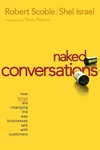Social news filtering sites, where users votes on the importance of news, are set to replace newspaper editors in the future. But current sites are struggling to harness the wisdom of the crowds of contributors. Digg.com one of the leading news filtering sites has made changes to improve their members voting quality.
With the ever increasing amount of information and news sources, filtering and ranking news has become essential. The blogosphere is often criticized for its bad quality and inability to inform, and newspaper owners are toughting bigmedia, newspapers, will win over the web. The big criticisms aimed at the blogosphere, at the Citizen Journalist, as a replacement to newspapers are:
- Rubbish blog entry quality
“Some blogs are conversations among people you’d frankly prefer not to meet, others ar cries for help and their writers are clearly in need of therapy. Others are just people expressing themselves, which is an entirely honourable pursuit, but would you like to meet this geek on a dark night?” Paul Hayes, The Times.
- Inability to filter the good from the bad
Social filtering sites, like digg.com and technorati.com, are filtering and extracting relevant quality information. Work still remains though, one of the problems is Groupthink ; a herd mentality amongst voters, where the editorial is set by a smaller group of friends, and show a common thread or opinion. Worst are
the habitual witch hunts with the most popular
digg A-listers tarring digg.com critics
James Surowiecki, the leading proponent of the wisdom of the crowds, sets certain conditions for this filtering to be effective:
- Diversity of Opinion:The broader the input of opinions and news the better
A group of mix-skill agents perform better than a group of skilled agents
- Independent Casting of VotesIf voters can imitate or be influenced by others in the casting of votes, groupthing or monkey-see-monkey-do syndrome sets in. In fact Surowwiecki observes the Unwisdom of the Crowds that comes with too much concensus and conformity
- Decentralized Channels where no central organization has powers to influence the vote or the filtering, so voters remain truely independent. Linux development is a great example of decentralized collaboration
- Intelligent Aggregation the diverse and independent opinions of the crowds must aggregated and averaged to extract its wisdom. A great example is Google’s study of people’s web links to a site through a complex aggregation system called pagerank to extract a ranking of web sites
The change to digg.com tries to resolve the herd or groupthink problem by favoring independent voters
This algorithm update will look at the unique digging diversity of the individuals digging the story. Users that follow a gaming pattern will have less promotion weight. This doesn’t mean that the story won’t be promoted, it just means that a more diverse pool of individuals will be need to deem the story homepage-worthy.
Kevin Rose, digg.com
An additional problem is the spammers skill in gaming the aggregation system in pursuit of peoples valuable attention.
Google has a groupthink problem also in that, due to the predominance of its search engine , people are now linking to sites the appear at the top of Google’s ranking only. People’s votes or web page links are being influenced by the concesus of the crowd. It seems information filtering sites are being hampered by their own success.
[Related link Head of “The Times” Dismisses Wisdom of the Crowds]



















